Australia 2018: the women flexing their legal know-how
Roula Khalaf, Editor of the FT, selects her favourite stories in this weekly newsletter.
Just over half of Australia’s solicitors are women, and 60 per cent of new entrants to the profession in the past year are female. Women also hold some of the most important positions across the country’s legal sector. Susan Kiefel was appointed to the country’s highest judicial post in 2017. Six of the general counsel at the top 10 listed companies on the Australian Securities Exchange are women, including the three on this list.
Law firms, however, lag behind. Just a quarter of equity partners at Australian law firms are female, according to a 2017 study by the Australian Financial Review, with far fewer in the top leadership roles. Sue Kench, global chief executive of King & Wood Mallesons and winner of the Australian innovative leader award (see panel below), is a notable exception.
Alongside the five leaders profiled below are five innovators who are combining law and technology to create new opportunities for their businesses and the next generation.
Lesley Hitchens, winner of the legal innovator award, welcomes the impact of technology on the legal profession: “Technology opens up different and more flexible ways of working and women, especially professionals — whose working lives have often not followed traditional male patterns, been less lineal or been more disrupted — will be more open to adapt and experiment.”
Leadership
Winner
Sue Kench | Global chief executive, King & Wood Mallesons
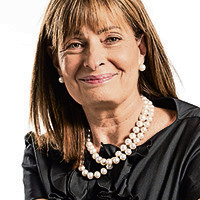
When Sue Kench became managing partner for Australia of King & Wood Mallesons in 2013 she became the first woman to lead one of the country’s “big eight” law firms. It captured the attention of the market in a way that took her by surprised and promoted a deluge of letters and emails of support from outside the profession, she says. “I think it opened people’s eyes to what was possible.”
In June 2017, Ms Kench was appointed global chief executive and moved from Australia to the firm’s headquarters in Hong Kong. After the turmoil and uncertainty that surrounded the collapse of its European arm, the firm has regained its strong reputation in Asia-Pacific under her leadership.
Innovation has always been high on Ms Kench’s agenda. As Australia managing partner, her priority was to find new ways to engage people more fully in the firm’s strategy. “I wanted a growth agenda, a growth mindset with some design thinking and a relationship approach to really connect our people with strategy,” she says. The firm was one of the first to build a dedicated innovation unit and to draw heavily on the expertise of its non-legal professionals to develop new ways of working with clients.
Caroline Cox | Group general counsel, BHP Billiton
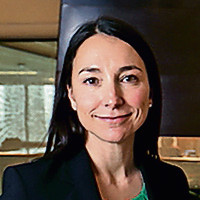
As the most senior lawyer at one of the world’s largest mining companies, Caroline Cox has a prominent role in a risky and high-profile industry.
Since taking over as general counsel in 2016, Ms Cox has focused on making her team take a holistic view of risk and opportunities.
She ensures the team considers long-term value and sustainability, as well as community and regulatory expectations, when advising the business.
Ms Cox has also introduced a range of secondment opportunities for the legal team as well as initiatives to support flexible work arrangements and promote mental health among her staff.
Before joining BHP in 2014, she practised as a disputes lawyer at Herbert Smith Freehills, and specialised in cross-border regulatory investigations, including representing multinationals in public inquiries.
Susan Kiefel | Chief Justice of the High Court of Australia

Susan Kiefel was appointed to Australia’s highest judicial position in January 2017. The country’s prime minister, Malcolm Turnbull, described her story as an inspiration, highlighting the humble start of her career.
Ms Kiefel left school at 15 and completed high school part-time while working as a legal secretary. She was admitted to the bar at 21, completed a master of law degree at Cambridge university in the UK and became the first woman in Queensland to take silk and then be appointed to the state’s supreme court. At her swearing-in ceremony, Ms Kiefel noted that 1901 marked the year that Australia’s High Court was established and the first women graduated in law from an Australian university. Yet it was not until 1987 that the first woman, Mary Gaudron, was appointed to the court.
Rebecca Lim | Group executive, compliance, legal and secretariat, Westpac
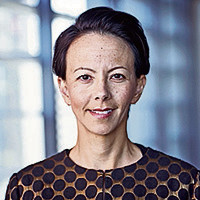
Rebecca Lim has transformed the compliance, legal and secretariat team to support Westpac’s digital transformation. This came amid increasing regulatory, governmental and public scrutiny of the Australian banking industry, after a host of scandals.
That process is far from complete; however, the legal team continues its focus on operational improvements and her team now works in an environment of “transformation as usual”. It includes an internal unit staffed with management consultants, data analysts and process experts that work on new projects. They are helping to roll out new tools, equip lawyers to work with different technologies, and using agile working methodologies.
Ms Lim has shifted the culture in the legal team to be proactive in tasks such as helping the bank develop new products or supporting a broader education for future law students.
Carmel Mulhern | Group general counsel and group executive of corporate affairs, Telstra
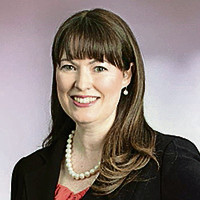
Carmel Mulhern retrained and empowered her legal team to support the business through a period of rapid change. Telstra’s business has undergone more drastic change than most over the past few years. The introduction of a new Australian national broadband network meant Telstra has given up its large wholesale broadband business and is reinventing itself as a leaner technology business.
Telstra has encouraged the use of “design thinking”, which encourages businesses to apply modern problem-solving techniques. This has included running brainstorming and training sessions to equip lawyers with the skills to develop better ways of working.
The Telstra legal team’s innovation programme has been used as a model for other legal teams around the world and for other business units within Telstra.
Innovation
Winner
Lesley Hitchens | Dean, faculty of law, University of Technology, Sydney
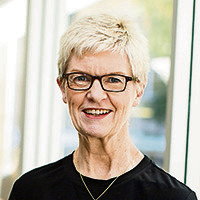
As dean of a law faculty at a tech-focused university, it was natural for Lesley Hitchens to think about how technology would affect legal practice and the careers of future graduates. Concerned at the predictions of a bleak future for lawyers, her faculty launched a series of public discussions, “Future of the Legal Profession”, in 2015.
These highlighted the benefits new technologies would bring, such as more affordable access to legal advice. It also helped shift the tone of the debate in Australia and led to change in how legal education is delivered at her faculty.
The University of Technology, Sydney introduced a “legal futures and technology” degree in 2018 which draws on the university’s expertise to equip students with skills to thrive in a changing workplace and legal industry.
“The future is not negative but one of opportunity, and we have to help our students feel confident about that,” says Prof Hitchens.
The discussions also helped forge relationships with law firms, businesses, tech experts and the not-for-profit legal sector, leading to new initiatives.
These include the first legal technology moot — a competition that simulates a court hearing — in Australia (the Law Tech Challenge for Social Justice), and industry internship programmes for students.
Jodie Baker | Founder and chief executive, Xakia Technologies
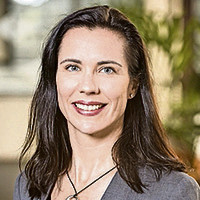
Jodie Baker’s ideas draw on her diverse career. She joined law firm MinterEllison before working as an in-house counsel and later as a financial analyst at wealth management firm JBWere. In 2012, she set up Hive Legal, a new model of law firm that relies heavily on technology to enable lawyers to work flexibly and remotely.
“I take great pride in playing my part in ensuring smart women don’t leave the industry when they have children and that men have more flexibility to share parenting,” says Ms Baker. She believes Hive played a part in an industry-wide shift in Australia towards more flexible working for lawyers and other legal staff. Most recently, Ms Baker has built a business, Xakia Technologies, which provides software to manage in-house legal teams’ workloads.
Anna Collyer | Partner and head of innovation, Allens

As a legal adviser, Anna Collyer has played a strong role in shaping the Australian energy market. She advised on the introduction of full retail competition in the Victoria electricity and gas industries and worked on harmonising state and territory regulation to create a national framework for electricity and gas retailing and distribution.
As head of innovation at Allens, she has promoted the use of design thinking, co-creation and collaboration with clients to address changes brought about by new technology and develop new ways of working.
Ms Collyer worked with the University of New South Wales to launch the Allens Hub for Technology, Law & Innovation. The hub aims to provide a base for legal researchers to collaborate with other disciplines, government and civil society to address the impact of technology on the legal system.
Caryn Sandler | Chief knowledge and innovation officer, Gilbert + Tobin
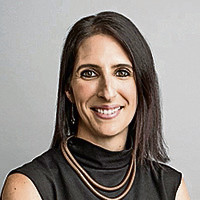
Caryn Sandler is the architect of many of Gilbert + Tobin’s innovations in legal process and technology. She worked on the firm’s g+t<i> strategy, which brought its legal and technology teams together with IT vendors and clients to develop new ways of working. She also helped design the 24-hour hackathons the firm ran with banking client Westpac. Some of the patented innovations that have come from new client and technology collaborations include an initial public offering verification tool and the Smart Counsel app to share knowledge with clients.
“As traditional service delivery shifts to more contemporary offerings, roles like mine will pave the way for different career paths — ones that will be increasingly relevant to the delivery of legal services,” says Ms Sandler.
Sarah Turner | General counsel and company secretary, REA Group
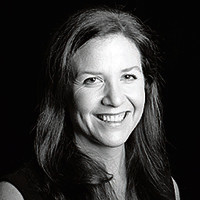
Nigel Dalton, REA Group’s chief inventor, has unusual praise for the company’s general counsel: “She would have made a great software developer if she’d chosen that path.”
Sarah Turner joined the property website company as general counsel five years ago and quickly adapted and adopted the best parts of agile software development for use in the legal team — for example, GitHub, an application, is used to update contract terms and conditions. The legal department has also automated contract production and created an artificial intelligence tool to check the veracity of claims made by the sales and marketing team.
Ms Turner has also played a leading role negotiating a partnership with National Australia Bank to create a property search and mortgage-broking platform.
Explore the Innovative Lawyers Asia-Pacific rankings 2018

Overall
- Rule of law and access to justice • In-house
- Most Innovative Law Firms (International)
- Most Innovative Law Firms (Asia-Pacific)
- Most Innovative In-House Legal Teams
Business of Law
- Australia • In-house
- New business & service delivery models • In-house
- New products & services
- Talent, strategy and changing behaviours • In-house
- Technology • In-house
Legal Expertise
- Accessing new markets & capital
- Accessing new markets & capital (Asia-Pacific)
- Accessing new markets & capital (International)
- Australia • In-house
- Dispute resolution
- Driving value • In-house
- Enabling business growth • In-house
- Managing complexity & scale
- Managing complexity & scale (Asia-Pacific)
- Managing complexity & scale (International)
Comments